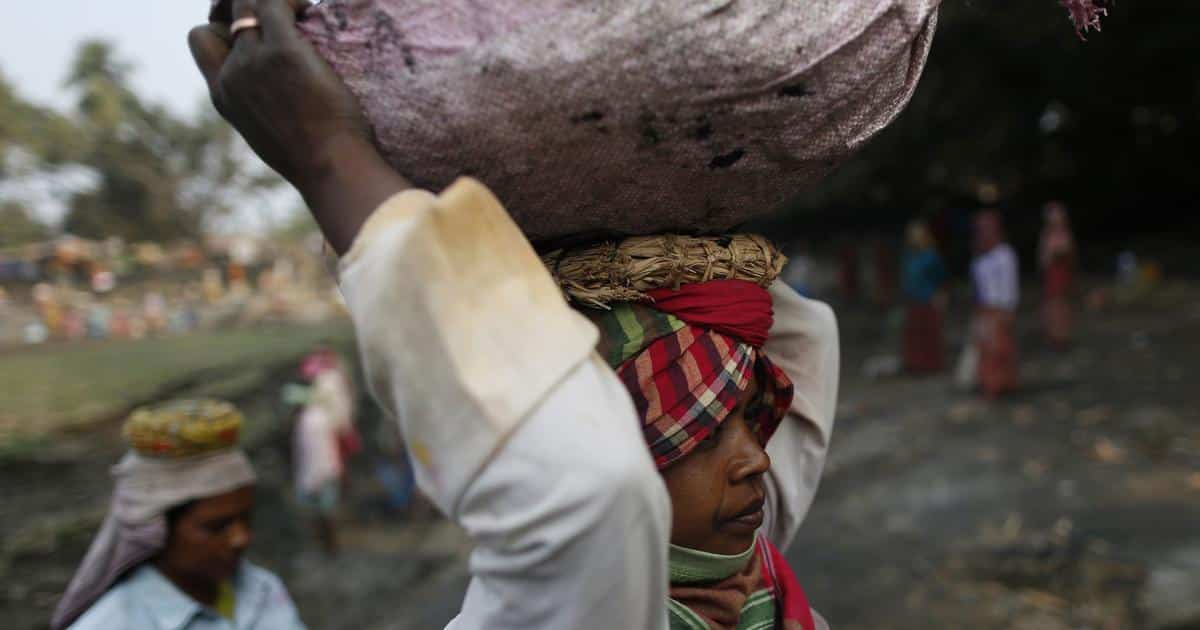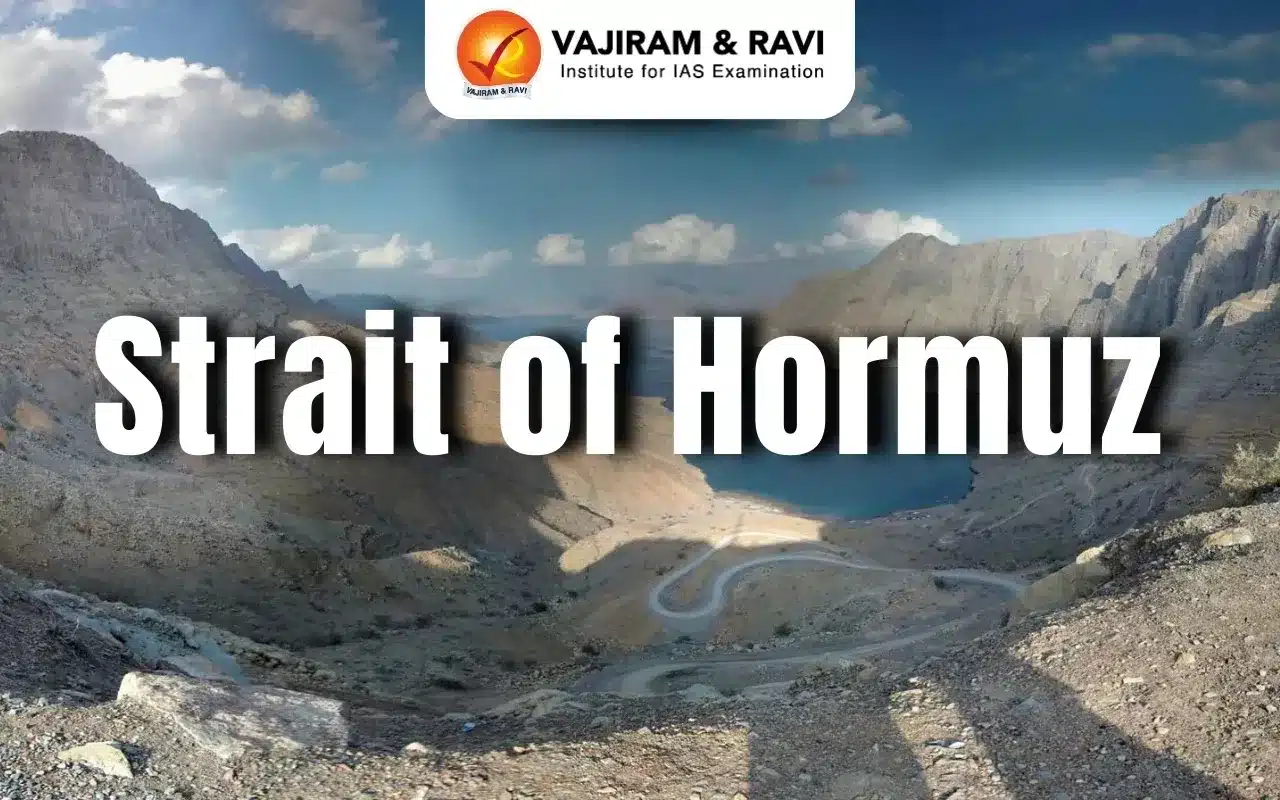What’s in today’s article?
- Why in News?
- What is MGNREGA/MGNREGS?
- Objectives of MGNREGS
- Procedure to Enroll under the MGNREGS
- Key Facts about the MGNREGS
- Issues with the Implementation of the MGNREGS
- Recommendations of the Standing Committee Report to further Strengthen MGNREGS
- New Summary wrt Deletions under MGNREGS
Why in News?
- The Ministry of Rural Development (MoRD), in a written reply to the Lok Sabha, informed that names of over five crore workers have been deleted under the MGNREGS in the financial year 2022-23.
- There has been a hike of 247% in the deletions during 2022-23 as compared to 2021-22.
What is MGNREGA/MGNREGS?
- The MG National Rural Employment Guarantee Act (MGNREGA), also known as MGNREGS is an Indian legislation enacted in 2005.
- It provides a legal guarantee for one hundred days of employment in every financial year to adult members of any rural household willing to do public work-related unskilled manual work at the statutory minimum wage.
- The MoRD, Government of India, is monitoring the entire implementation of this scheme in association with state governments.
Objectives of MGNREGS:
- It aims to improve the purchasing power of the rural people by giving people living below poverty line primarily semi or un-skilled work.
- It attempts to bridge the gap between the rich and poor in the country and leads to women empowerment as roughly one-third of the stipulated work force must be women.
Procedure to Enroll under the MGNREGS:
- Adult members of rural households submit their name, age and address with a photo to the Gram Panchayat.
- The Gram Panchayat registers households after making enquiry and issues a job card.
- The job card contains the details of the adult member enrolled and his/her photo.
- Registered person can submit an application for work in writing (for at least fourteen days of continuous work) either to Panchayat or to Programme Officer.
- The employment will be provided within a radius of 5 km and if it is above 5 km extra wage will be paid.
Key Facts about the MGNREGS:
- Right to get unemployment allowance in case employment is not provided within 15 days of submitting the application or from the date when work is sought.
- MGNREGS focuses on the economic and social empowerment of women.
- MGNREGS provides “Green” and “Decent” work.
- Social Audit of works is mandatory, which lends to accountability and transparency.
- MGNREGS works address the climate change vulnerability and protect the farmers from such risks and conserve natural resources.
- The Gram Sabha is the principal forum for wage seekers to raise their voices and make demands.
- It is the Gram Sabha and the Gram Panchayat which approves the shelf of works under MGNREGS and fix their priority.
Issues with the Implementation of the MGNREGS:
- Delayed payment of wages: This is mainly due to failed payment transfers arising from inactive Aadhaar and closed, blocked, or frozen bank accounts.
- Delay in compensation: In case of delay in payment of wages under MGNREGA, beneficiaries are entitled to compensation at the rate of 0.05% of unpaid wages per day for the duration of delay.
- Unemployment allowance: State governments determine the rate of this allowance. In 2019-20 and 2020-21, only Rs 12,000 and Rs 3,000 respectively was paid as unemployment allowance.
- Poor implementation of social audits provision: In 2020-21, only 29,611 Gram Panchayats were audited at least once and social audit reports are not publicly available.
- Appointment of ombudsperson: Under the Act, there should be an ombudsperson for each district who will receive grievances, conduct enquiries, and pass awards.
- So far only 263 ombudsmen have been appointed which shows poor coordination between central and state nodal agencies.
Recommendations of the Standing Committee Report to further Strengthen MGNREGS:
- Increase in number of days of work (from 100 days to 150 days).
- Revision of permissible works: It recommended to consult stakeholders and include area-specific works under MGNREGA as per local needs.
- Uniform wage rate: Need to devise a mechanism for a unified wage rate across the country as wage rates currently range from Rs 193 to Rs 318 in different states/UTs.
- Increase in wages commensurate with inflation.
New Summary wrt Deletions under MGNREGS:
- According to the MoRD, deletions are a “regular exercise” conducted by State governments.
- West Bengal (5,199%) has reported the largest hike in deletion, followed by Telangana (2727%) and Andhra Pradesh (1147%).
- The State governments have listed five reasons for the deletions, including – fake job card, duplicate job card, not willing to work, family shifted from gram panchayat permanently and single person in job card and the person is expired.
- According to some reports, the deletions are spiralling because of the government’s emphasis on linking MGNREGS job cards with Aadhaar cards and making wage payments through the Aadhaar-Based Payments System (ABPS).
Q1) What is the Deendayal Antyodaya Yojana- National Urban Livelihoods Mission (DAY-NULM)?
The NULM, under the aegis of the Ministry of Housing and Urban Affairs, aims to facilitate skilled wage employment and gainful self-employment among the urban poor.
Last updated on June, 2025
→ UPSC Notification 2025 was released on 22nd January 2025.
→ UPSC Prelims Result 2025 is out now for the CSE held on 25 May 2025.
→ UPSC Prelims Question Paper 2025 and Unofficial Prelims Answer Key 2025 are available now.
→ UPSC Calendar 2026 is released on 15th May, 2025.
→ The UPSC Vacancy 2025 were released 1129, out of which 979 were for UPSC CSE and remaining 150 are for UPSC IFoS.
→ UPSC Mains 2025 will be conducted on 22nd August 2025.
→ UPSC Prelims 2026 will be conducted on 24th May, 2026 & UPSC Mains 2026 will be conducted on 21st August 2026.
→ The UPSC Selection Process is of 3 stages-Prelims, Mains and Interview.
→ UPSC Result 2024 is released with latest UPSC Marksheet 2024. Check Now!
→ UPSC Toppers List 2024 is released now. Shakti Dubey is UPSC AIR 1 2024 Topper.
→ Also check Best IAS Coaching in Delhi
























